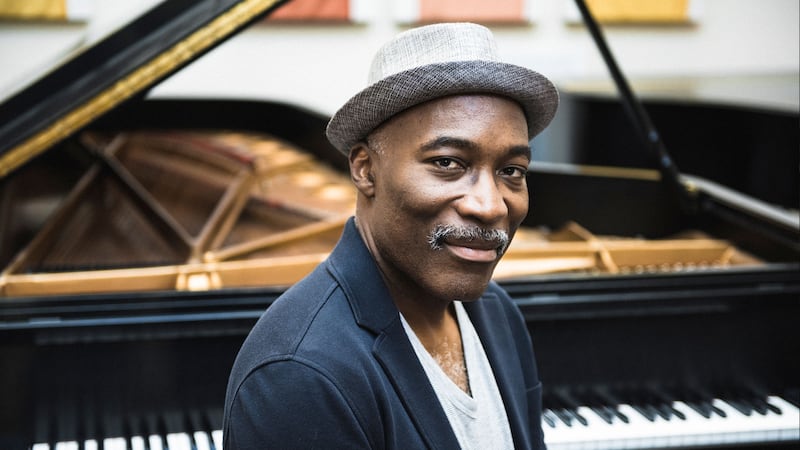Earlier this year, Darrell Grant found himself lugging a piano into the woods near Coos Bay.
A few weeks before, a stranger had approached the 55-year-old Portland State University jazz professor, hoping he might aid her in raising awareness about the state's plan to sell the 90,000-acre Elliott State Forest in southwest Oregon to private owners. As a musician and educator, Grant found the request intriguing. He didn't have a lot of time to mull it over, though—a decision on the sale was coming up in less than two months.
So on a dewy April morning, surrounded by a canopy of Douglas firs, Grant played a set of improvised music for a small crowd of onlookers. The next month, the State Land Board voted to keep ownership of the land public.

"I don't have the data to say how much of an impact we had," Grant says, "but I want to believe art speaks to people in a way political rhetoric doesn't."
It's a belief that has guided him throughout his career. Since arriving in Portland 20 years ago, Grant has operated on the principle that artists should use their gifts in service of the greater good. He's explored themes of social justice in his compositions and raised money for numerous nonprofits. In the fall, he's even teaching a class called "Artist as Citizen" about using art for the betterment of the world.
And that's to say nothing of his contribution to jazz culture itself—by his own admission, you almost can't go to a club in this town without encountering one of his students onstage.
Some acquaintances refer to Grant as "God's gift to Portland," a suggestion that makes him laugh with embarrassment. But he admits to being motivated by a deep sense of obligation, not just to the music that gave him his livelihood but to the ideals that have long structured his life.
"Those kind of questions are the heart of my work right now," Grant says. "How do musicians, how do artists, affect the society, the culture, the community? How do we engage our skills and our art forms on behalf of the community?"
Grant, who grew up in Colorado, came to Portland after spending a decade in New York's jazz scene. It might not have been divine intervention that brought him to the Pacific Northwest, but there was some happenstance involved. Unbeknownst to him, around the time he was trying to figure out the next step in his career, someone entered his name into a pool of applicants to fill a vacancy in PSU's jazz studies department. It was, he says, a "dream gig."
"Whether or not I had a teaching position, I had a clear understanding that as I grew older, that was my role, that was my responsibility—you teach the next generation," he says. "And to have a position and platform to do it was great."
At a time when the local jazz scene is reeling from venue closures and the deaths of key figures, Grant's mentorship is helping to keep it afloat. In addition to educating in his own classrooms, he's brought jazz into other schools through outreach programs developed at the Leroy Vinnegar Jazz Institute, for which he served as founding director.

While still an active musician—his modern jazz quartet is doing a showcase in New York this fall—teaching remains Grant's primary passion. Of his upcoming projects, the one he speaks of with the most enthusiasm is his Artist as Citizen class, which he calls an "experiment" in formally exploring the theme of social responsibility in the arts.
"Many people, artists among them, feel the current political climate requires us to think about our engagement with the world and what statements we want to make, and should make, and how to use our art to contribute to our citizenship," he says. "It seems like a good time to do that within our institutions."
SEE IT: Artists as Citizen is open to the public at PSU's Lincoln Hall, Room 75, 1620 SW Park Ave., pdx.edu. 6 pm Monday, Oct. 23.
